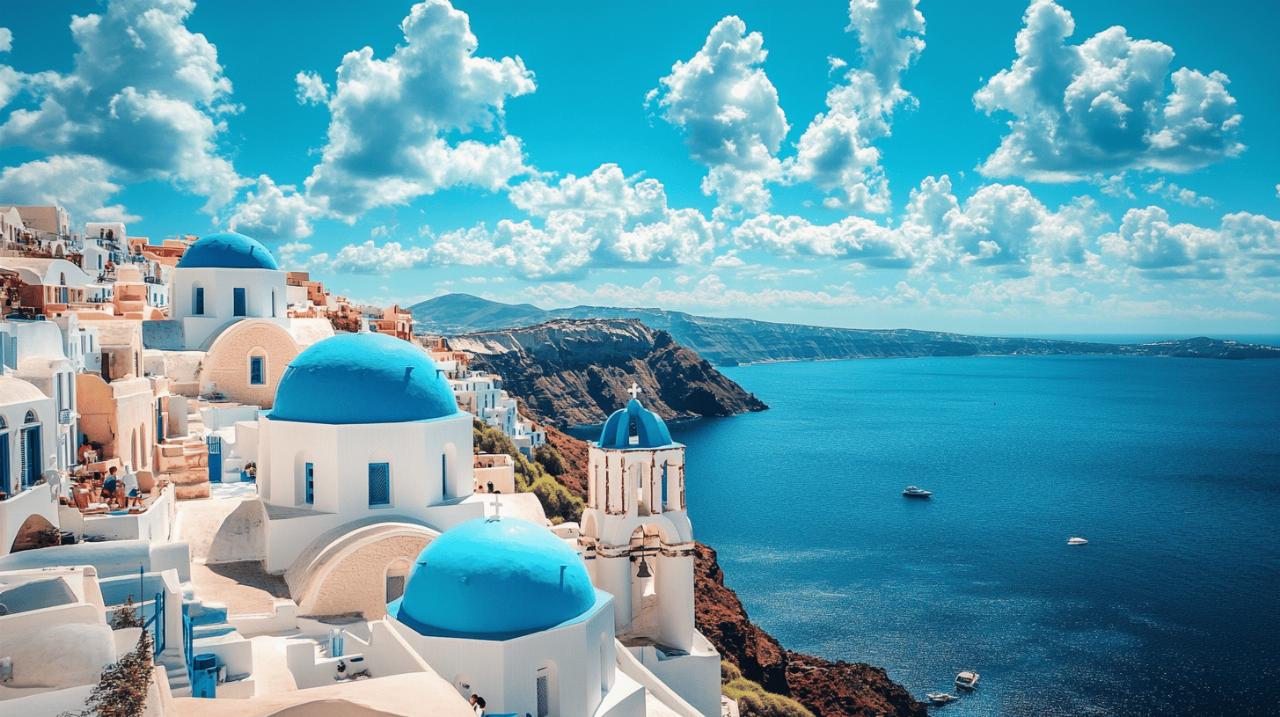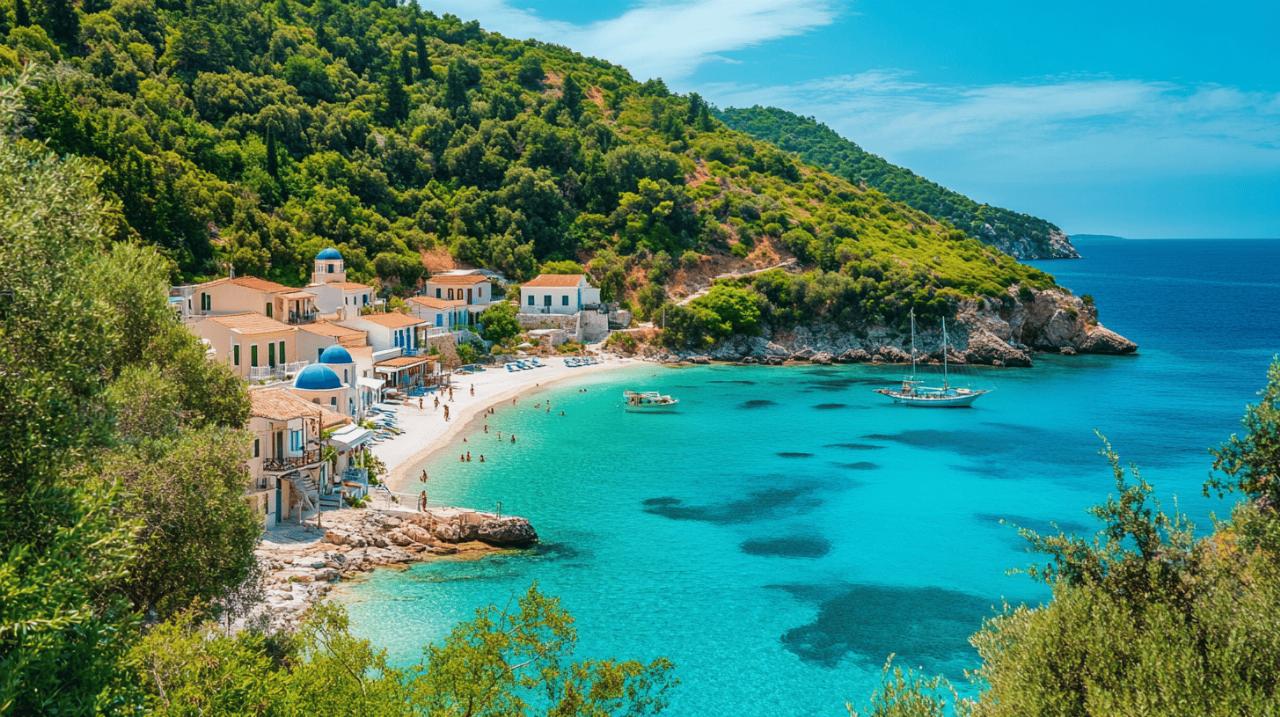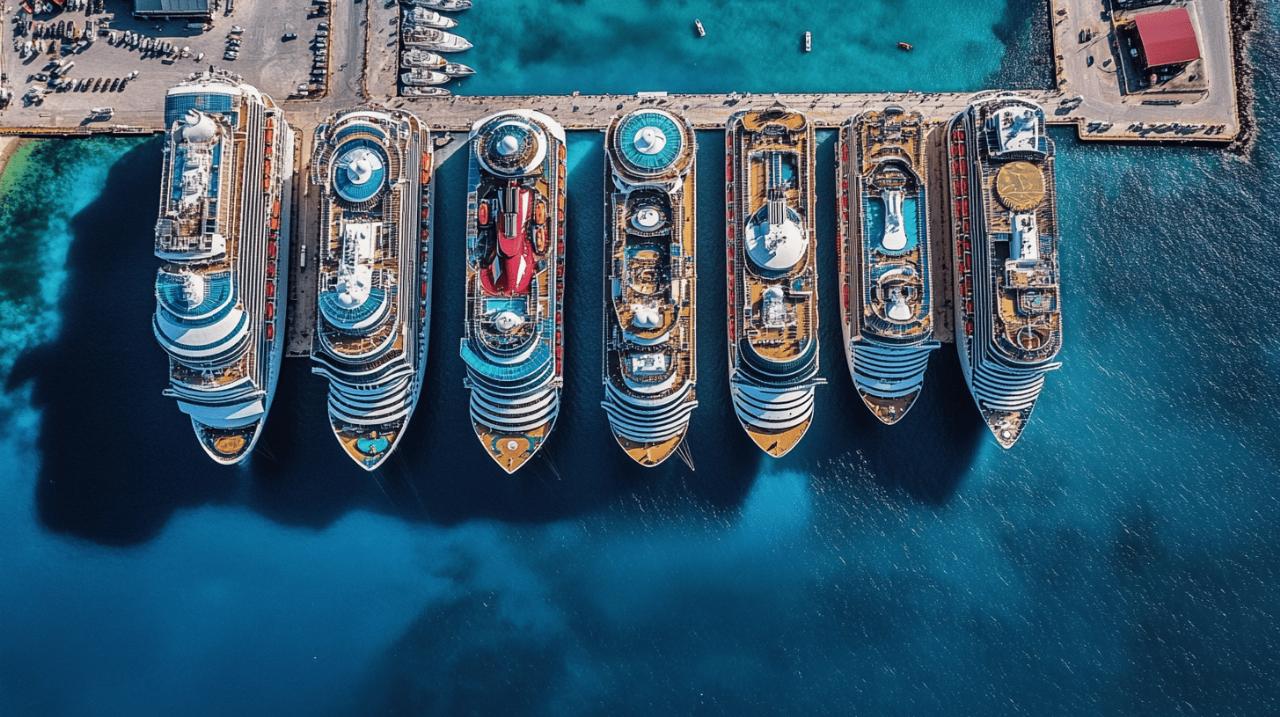Greece has long captivated travellers with its sun-drenched landscapes, ancient history, and vibrant culture, but in recent years, another facet of this Mediterranean jewel has begun to sparkle: its wine country. From the volcanic slopes of Santorini to the rolling hills of Nemea, Greece offers a fascinating tapestry of wine regions that produce distinctive and characterful wines from indigenous grape varieties. For those planning a journey through these lesser-known terroirs, choosing the right travel guide can make all the difference. Two names frequently arise in the conversation: Lonely Planet and Guide du Routard. Both are respected authorities in the world of travel literature, yet they approach the art of guiding travellers in notably different ways. Understanding how each guide addresses Greek wine tourism, the coverage of traditional varietals, and practical touring advice can help you decide which companion best suits your journey through Greece's burgeoning wine landscape.
Navigating greece's wine regions: a guide comparison
Greece's wine regions are as varied as they are beautiful, spanning from the Aegean islands to the mountainous mainland. Each area presents its own unique combination of climate, soil, and tradition, resulting in wines that tell a story of place and heritage. When it comes to navigating these diverse regions, both Lonely Planet and Guide du Routard offer valuable insights, though their editorial philosophies lead them down somewhat different paths. The choice between these two guides often hinges on what kind of experience you seek: a meticulously detailed itinerary with comprehensive logistics, or a more spontaneous exploration that emphasises cultural immersion and local authenticity.
Lonely Planet's Approach to Greek Vineyards and Wine Tourism
Lonely Planet has built its reputation on delivering thorough, well-researched content that covers destinations with impressive breadth and depth. For travellers interested in Greek wine country, this translates into detailed maps, clear directions to vineyards, and practical information about opening hours, tasting room fees, and accommodation options in wine regions. The guide excels at providing a structured overview of the major wine-producing areas, offering historical context and explaining the significance of each region within the broader Greek wine narrative. Whether you are planning a visit to the famed vineyards of Santorini, where the Assyrtiko grape thrives in volcanic soil, or exploring the cooler climates of northern Greece where Xinomavro produces complex reds, Lonely Planet ensures you have the factual foundation needed to make informed choices. The guide is particularly strong for English-speaking travellers who appreciate having information presented in a clear, accessible manner. Its recommendations for wineries often include a mix of well-established estates and newer producers, giving readers a sense of both tradition and innovation within the Greek wine scene. The practical advice extends beyond the vineyards themselves, covering transport links, nearby attractions, and dining options that complement a wine-focused itinerary.
Guide du Routard's Perspective on Authentic Wine Experiences
Guide du Routard, by contrast, leans towards a more adventurous and culturally immersive approach. This guide is beloved by travellers who value authenticity and are eager to step off the beaten path in search of genuine local experiences. When it comes to wine tourism in Greece, Routard emphasises family-run wineries, small-scale producers, and the personal stories behind the bottles. The guide encourages readers to engage with winemakers, participate in harvest activities if the timing is right, and explore the social and cultural contexts in which Greek wine is produced and enjoyed. This perspective is invaluable for those who see wine not merely as a beverage to be tasted but as a lens through which to understand Greek culture and community life. Routard's recommendations often highlight lesser-known wine regions and emerging appellations, offering readers the chance to discover hidden gems that might not yet be on the radar of mainstream tourism. The guide also tends to focus on budget-conscious options, making it an excellent choice for travellers who want to experience Greek wine country without breaking the bank. By championing local businesses and sustainable tourism practices, Guide du Routard aligns with the values of travellers who prioritise ethical and responsible travel.
Uncovering traditional greek grape varietals through your travel companion
One of the most exciting aspects of Greek wine tourism is the opportunity to taste wines made from grape varieties that are found nowhere else in the world. Greece boasts a rich viticultural heritage, with over three hundred indigenous grape varieties, many of which have been cultivated for thousands of years. Understanding these varietals and where they are grown adds a layer of depth to any wine country visit. Both Lonely Planet and Guide du Routard recognise the importance of these traditional grapes, but they present this information in ways that reflect their distinct editorial styles. The depth of coverage, the manner in which tasting notes are conveyed, and the emphasis on local winemaking traditions all vary between the two guides, offering travellers different perspectives on the same fascinating subject.
Coverage of Indigenous Grapes: Assyrtiko, Xinomavro, and Beyond
Assyrtiko, Xinomavro, Agiorgitiko, Moschofilero, Malagousia: these names may be unfamiliar to many wine drinkers, yet they represent some of the most distinctive and high-quality wines being produced in Greece today. Lonely Planet provides a solid introduction to these varietals, often dedicating sections of its regional chapters to explaining the characteristics of the grapes, the typical flavour profiles of the wines they produce, and the best places to taste them. The guide's approach is informative and educational, making it easy for readers to understand what makes each varietal special and how it fits into the broader landscape of Greek wine. For example, the coverage of Assyrtiko typically highlights its crisp acidity, mineral notes, and ability to age, while Xinomavro is described in terms of its tannic structure, complexity, and potential for producing age-worthy reds. This kind of detail is invaluable for travellers who want to arrive at a winery with a clear understanding of what to expect and how to appreciate the wines they will taste. Guide du Routard, meanwhile, integrates information about traditional varietals into its narrative of local culture and tradition. Rather than presenting grape varieties as isolated facts, Routard weaves them into stories about the people who grow them, the terroir that shapes their character, and the traditions that govern their production. This approach can be particularly engaging for travellers who enjoy learning through storytelling and who want to feel a personal connection to the wines they taste. Routard might, for instance, introduce Assyrtiko through the lens of a winemaker on Santorini who maintains ancient basket-trained vines on volcanic slopes, emphasising the resilience and cultural significance of the grape as much as its flavour profile.
Wine tasting recommendations and local winery insights
When it comes to recommending specific wineries and tasting experiences, the two guides diverge in their selection criteria and presentation. Lonely Planet tends to offer a balanced mix of well-known estates and emerging producers, providing practical details such as whether reservations are required, the cost of tastings, and the availability of tours in English. This makes it straightforward to plan a wine tour with confidence, knowing that the recommended wineries are accessible and accustomed to hosting visitors. The guide also often includes tips on pairing local wines with Greek cuisine, suggesting tavernas and restaurants where regional wines are featured. Guide du Routard's recommendations, on the other hand, are more likely to spotlight small, family-run operations where the experience is intimate and personalised. The guide encourages travellers to seek out wineries where the owner might personally lead the tasting, sharing not just technical details about the wines but also anecdotes about the history of the estate, the challenges of winemaking in Greece, and the evolution of the local wine scene. This approach can lead to memorable and authentic encounters, though it may require more flexibility and a willingness to embrace spontaneity. Routard's emphasis on cultural exchange means that travellers are often encouraged to learn a few words of Greek and to show genuine interest in the stories and traditions of the people they meet, enriching the overall experience beyond the wine itself.
Practical Wine Country Travel: What Each Guide Brings to the Table
 A successful wine country journey requires more than just knowing which wineries to visit. Travellers need reliable information about how to get around, where to stay, where to eat, and how to make the most of their time in each region. Both Lonely Planet and Guide du Routard understand this, and both provide practical advice tailored to their respective audiences. However, the level of detail, the tone of the guidance, and the focus on different aspects of travel logistics reflect the broader differences between the two guides. Whether you prefer a guide that lays out every detail in advance or one that encourages you to explore and discover as you go will influence which guide serves you best.
A successful wine country journey requires more than just knowing which wineries to visit. Travellers need reliable information about how to get around, where to stay, where to eat, and how to make the most of their time in each region. Both Lonely Planet and Guide du Routard understand this, and both provide practical advice tailored to their respective audiences. However, the level of detail, the tone of the guidance, and the focus on different aspects of travel logistics reflect the broader differences between the two guides. Whether you prefer a guide that lays out every detail in advance or one that encourages you to explore and discover as you go will influence which guide serves you best.
Transport, Accommodation, and Touring Tips for Wine Enthusiasts
Transport is often a key concern for wine tourists in Greece, as many of the most interesting vineyards are located in remote or rural areas that are not always well served by public transport. Lonely Planet excels at providing clear, practical advice on getting around, with detailed information about car hire, driving routes, and the availability of taxis or local buses. The guide typically includes maps that show the locations of wineries relative to major towns and transport hubs, making it easier to plan efficient routes. Accommodation recommendations are similarly detailed, with options ranging from budget guesthouses to boutique hotels, often with notes about proximity to wine regions and the availability of wine-themed packages or services. This level of detail is particularly useful for travellers who like to book in advance and who want to ensure that all the logistics are taken care of before they arrive. Guide du Routard, in keeping with its adventurous ethos, offers practical advice but with a lighter touch, encouraging travellers to be flexible and open to changing their plans based on local advice and discoveries along the way. The guide often highlights charming, locally owned guesthouses and small hotels that may not have an online presence or sophisticated booking systems but that offer authentic hospitality and a genuine taste of Greek life. Touring tips in Routard frequently emphasise the value of slowing down, spending time in one place, and building relationships with local hosts and winemakers rather than rushing from one tasting to the next. This approach may not suit everyone, but for those who relish the idea of a more organic and spontaneous travel experience, it can be deeply rewarding.
Budget Considerations and Value for Money in Greek Wine Regions
Budget is always a consideration when planning a trip, and wine tourism can range from affordable to quite costly depending on where you go and how you travel. Lonely Planet caters to a wide range of budgets, offering recommendations for everything from backpacker-friendly hostels to upscale hotels, and from casual tavernas to fine dining establishments. The guide provides a good sense of what to expect in terms of costs for wine tastings, meals, and accommodation, helping travellers to plan their spending and make choices that align with their financial comfort zone. Its practical, no-nonsense approach to budgeting is one of its strengths, making it easier to balance indulgence with economy. Guide du Routard, however, has a distinct reputation for prioritising budget-conscious travel, and this is evident in its coverage of Greek wine country. The guide is more likely to highlight affordable or free tasting opportunities, family-run tavernas where you can enjoy excellent local wines without the hefty price tag, and accommodation options that offer great value. This focus on accessibility and affordability makes Routard particularly appealing to younger travellers, backpackers, and anyone who wants to experience Greek wine culture without significant financial outlay. The guide also tends to emphasise sustainable and ethical tourism practices, which often align with more affordable, locally focused travel choices. By championing small producers and local businesses, Routard not only helps travellers save money but also encourages them to contribute directly to the local economy in a meaningful way.
Choosing your perfect greece wine country guide
Ultimately, the decision between Lonely Planet and Guide du Routard comes down to understanding your own travel style and what you hope to get out of your journey through Greece's wine regions. Both guides have their strengths, and both can enrich your experience in different ways. The key is to recognise which approach resonates more with your personal preferences and to use the guide as a flexible resource rather than a rigid script. Some travellers may even find that combining insights from both guides offers the best of both worlds, blending Lonely Planet's detailed planning tools with Routard's emphasis on authenticity and cultural immersion.
Matching Your Travel Style with the Right Guidebook
If you are someone who enjoys having every detail planned out in advance, who appreciates comprehensive maps and logistical information, and who values the peace of mind that comes from knowing what to expect, Lonely Planet is likely to be your preferred companion. Its clear, structured approach makes it easy to design an itinerary that covers the major wine regions, includes a mix of well-regarded wineries, and ensures that accommodation and transport are sorted well before you depart. This guide is particularly well-suited to first-time visitors to Greece or to those who have limited time and want to make the most of every day without the stress of figuring things out on the fly. On the other hand, if you are an adventurous traveller who thrives on spontaneity, who enjoys the thrill of discovering hidden gems, and who values personal connections and cultural exchange over convenience, Guide du Routard will likely feel like a more natural fit. Its emphasis on local immersion, small-scale producers, and off-the-beaten-path experiences encourages a slower, more mindful way of travelling that can lead to deeper and more memorable encounters. This guide is ideal for those who are comfortable navigating a bit of uncertainty and who see travel as an opportunity to learn, grow, and engage with the world in a meaningful way.
Complementary Resources and Final Recommendations for Wine Travellers
While Lonely Planet and Guide du Routard are both excellent resources, no single guide can cover everything, and the best-prepared travellers often supplement their guidebooks with additional sources of information. Online resources, wine blogs, and social media can provide up-to-date information about new wineries, special events, and changing conditions in the wine regions. It can also be helpful to consult specialist wine guides or to reach out to local tourism offices for the latest recommendations. Some travellers find that using Lonely Planet for the practical groundwork and then turning to Routard for inspiration about where to seek authentic experiences offers a balanced and comprehensive approach. Additionally, cookbooks such as A Drop of Ladi & My Greek Soul can offer cultural context and recipes that pair beautifully with Greek wines, enhancing your appreciation of the food and wine culture. Books like Greece – Culture Smart! provide insights into Greek customs and etiquette, which can be invaluable when visiting family-run wineries where a respectful and engaged attitude is deeply appreciated. For those interested in exploring traditional villages that often serve as gateways to wine regions, guides like Most Beautiful Villages of Greece can complement the information found in Lonely Planet or Routard. In the end, the best guide is the one that inspires you to explore, to taste, to learn, and to connect with the people and places that make Greece's wine country so special. Whether you choose the meticulous planning and breadth of Lonely Planet, the cultural immersion and authenticity of Guide du Routard, or a combination of resources, your journey through Greece's vineyards promises to be a rich and rewarding adventure.





